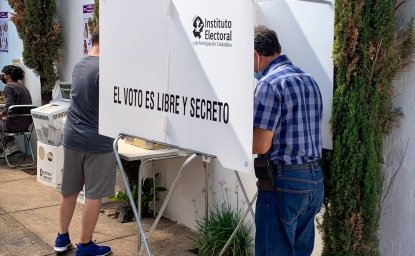Recall referendum: 7 key takeaways (from what we know so far)
Up to now, these are the seven essential takeaways from the recall referendum exercise that took place in Mexico this past April 10th.
Up to now, these are the seven essential takeaways from the recall referendum exercise that took place in Mexico this past April 10th.



The Mexico Institute seeks to improve understanding, communication, and cooperation between Mexico and the United States by promoting original research, encouraging public discussion, and proposing policy options for enhancing the bilateral relationship. A binational Advisory Board, chaired by Luis Téllez and Earl Anthony Wayne, oversees the work of the Mexico Institute. Read more



